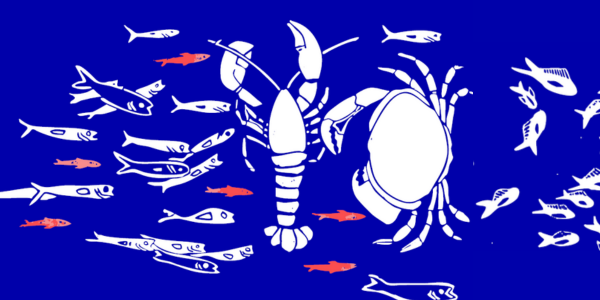Calls for legally binding deadline to end overfishing as public back action
Press Release Date: November 13, 2024
Location:
Contact:
Daisy Brickhill | email: dbrickhill@oceana.org

- The dire state of UK’s fish populations along with a chaotic and unjust approach to catch quotas means a radically new approach to overfishing is needed to boost ocean health and coastal economies says Oceana UK, which has laid out a roadmap for government.
- Establish a legally binding, timebound target on overfishing; ban supertrawlers; safeguard marine protected areas; and make fishing quotas fair are among the range of measures that Oceana proposes.
- Eight in ten Brits are concerned about the impacts of declining fish populations on ocean wildlife such as seabirds and dolphins, polling revealed, and 78% backed Oceana’s calls for stricter limits on catches in UK seas, in line with what scientists say is sustainable.[1]
Following Oceana’s 2023 report showing that half of the UK’s key fish populations were either overfished or critically low, the charity has launched a roadmap to ending overfishing and restoring ocean health.
After speaking to small-scale fishers, academics, and environmentalists from around the UK, the charity developed Mission Regeneration: A roadmap to end overfishing and restore life to UK seas for a fishing sector based on the principles of science, fairness, resilience, transparency and respect.
For each of the five core principles, Oceana provides time-bound actions for government to take. By the end of 2025, the government should have set a legally binding, science-led deadline to end overfishing , Oceana argues, along with a ban on ‘supertrawlers’ over 100 metres long, which hoover up vast quantities of ocean life.
The resilience of UK seas in the face of other serious threats, such as the climate crisis and pollution, is also vital and requires measures to rejuvenate and protect ocean wildlife, such as urgently banning destructive bottom-trawl fishing in marine protected areas.
The government must also act to level the playing field, says Oceana, so that those that fish with nature, rather than against it, are rewarded with a greater share of quota and more taxpayer money goes towards sustainable practices.
Bally Philp, of the Scottish Creel Fishermen’s Federation, who was not an author of the report but was interviewed during its development, said:
“I see pictures of my dad’s boat, knee deep in cod of a decent size. Cod like that would make the front page of newspapers now, and that change has happened in just one generation. Small-scale, local fishers, who rely on a healthy, productive ocean, need action now. If we ended overfishing once and for all how many more whales and dolphins could the ecosystem support? How many more fishermen?”
Hugo Tagholm, Executive Director of Oceana UK, said:
“Overfishing in UK waters, and the destruction of ocean wildlife it drives, is fundamentally a political choice. Year on year, catch limits have been set too high, with no regard for those small, local boats that need healthy seas to survive. Right now, we are allowing wealthy corporations to asset-strip our seas and move on, with no regard for coastal communities or our heritage as an ocean nation. Ending overfishing would bring back the abundance of our seas, provide resilience in the face of the climate crisis, and boost coastal economies. It is an opportunity that should not be missed.”
As well as the specific measures that are the building blocks of ending overfishing, the government will also need to organise itself differently, Oceana says. It must move away from siloed thinking: fishing and ocean health are not only issues for policymakers focused on environment or industry, but also climate, communities and trade.
The call for action is echoed by the UK public, according to new polling data. Eight in ten people (82%) are concerned about the impacts of declining fish populations on ocean wildlife, and the same proportion (80%) is worried that those who work in the fishing industry would lose their livelihoods if fish populations continued to fall. A total of 78% of those asked supported the government introducing stricter, science-based limits on how many fish can be caught in UK seas.
Callum Roberts, Professor of Marine Conservation at the University of Exeter, who was not involved in the report, said:
“The science shows that we can restore our seas to thriving abundance and full health. What is standing in the way of this is not a lack of data, knowledge or technology. What is standing in the way of this political inaction, pure and simple. A comprehensive overhaul of the government’s strategy is needed, and Oceana’s report has started that conversation.”
Will McCallum, Director of Greenpeace, who was not an author of the report but was interviewed, said:
“Oceana’s report shows that the UK public is rightly worried about what overfishing is doing to our seas and local livelihoods. The current approach puts big industry first; coastal communities a distant second; and the health of our ocean last of all. The UK needs a radical change in approach that is fair for all.”
ENDS
[1] Polling was carried out for Oceana by More in Common. The survey was carried out online between 9 – 10 October 2024. The total sample size was 2073 GB adults (excludes Northern Ireland). Respondents have been weighted according to age/sex interlocked, 2024 General Election vote, ethnicity, and education level. More in Common is a member of the British Polling Council and abides by their rules. Full results can be found here.
